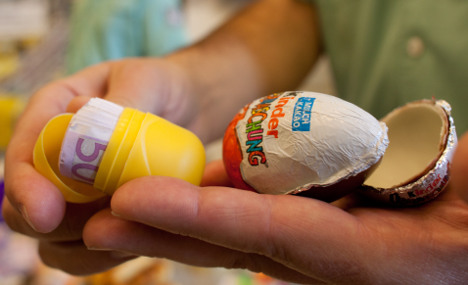Finance Minister Wolfgang Schäuble announced the annual figures on Friday, describing customs as one of the government’s most important source of income.
But people will always try to avoid paying duties when bringing money into the country, and German customs officers seized €14 million in cash last year, said Schäuble.
Chocolate hiding places seem to have come into vogue, with some of the more creative and sweet-toothed hiding places displayed on Friday.
One chocolate egg would have given any child looking for a plastic toy more than the advertised surprise – officers found €8,000 in cash inside.
Officers also found chocolate rabbits filled with money, while another would-be tax evader simply stuck his wedge of fifties into a tin of chocolate drink powder.
It was probably less surprising that the smuggler who filled a couple of wine bottles with bank notes was caught – the money was clearly visible through the glass.
Drug smugglers lost around €150 million worth of their wares in 2011, as customs officers confiscated 29 tonnes of drugs, two tonnes more than in the previous year.
The most valuable haul was a total of 1.6 tonnes of cocaine worth around €100 million, said Schäuble. This was followed by 1.3 tonnes of marijuana, 1.2 tonnes of hashish and 357 kilos of heroine.
Around 160 million smuggled cigarettes were seized, an increase of three million on 2010, he said.
The Local/DPA/hc



 Please whitelist us to continue reading.
Please whitelist us to continue reading.
Member comments